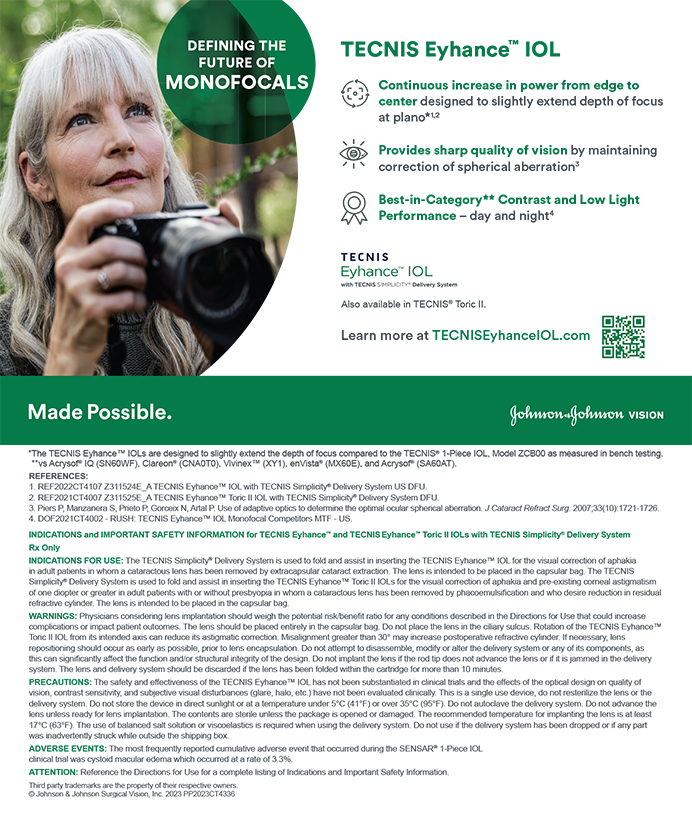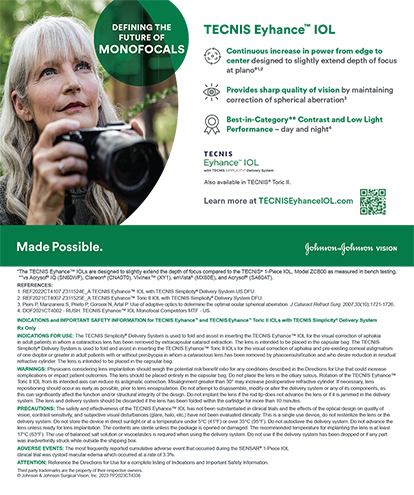
One of the most powerful acts that one human can do for another is care for him or her. In this age of increasing digital and decreasing personal interaction, people are touched when someone shows a true interest in them, in person.
THE POWER OF PEOPLE
The power of people being present, real, and positive with one another is a force to be respected and enjoyed in any setting. Frankly, being present and positive to others is a great way to go through life, both personally and professionally.
The business leader who understands, promotes, and cultivates a positive culture is one who will enjoy satisfied partners and employees. These individuals will, in turn, help to create an environment that is infectious and joyous.
THE TEAM, THE TEAM, THE TEAM
Please notice that so far I have not mentioned the patient or the customer. The reason for this is that I believe the team experience is the most important experience in any business, including the practice of medicine.
Yes, I understand fully that we took an oath to care for our patients, and we are going to do just that to the best of our abilities, with the best technology, and with the best care available on Mother Earth. But, to create a caring culture, a business must have a great positive culture first. It takes a great team experience to create a great patient experience.
A POSITIVE CULTURE BUILDS CONFIDENCE
A positive culture feeds itself. As a business with a positive culture grows and matures, the customers, or patients, who get the honor of experiencing it will take notice that it is a special place. They will in turn trust that culture to take care of their eye surgical or medical needs.
As our partner John P. Berdahl, MD’s grandma has taught us: People want to know how much you care before how much you know. I am convinced that the key to our busy practice is exactly this, caring deeply for our team and fellow person and showing it in tangible ways.
A positive culture in a medical practice builds confidence in patients and referring doctors. We perform anterior segment surgery for patients locally and from far away because they have heard how much we care. It all starts when a patient has heard of us from another happy patient, from a referring doctor, or through our marketing efforts.
The first action patients often take is to call our center. This phone call is one of the most important events in a patient’s journey with us, and it sets the tone for the entire patient journey. In that phone call, patients find out firsthand through this extremely significant first communication and interaction with our phone team that, indeed, they are going to be treated special. This both makes the first impression and sets the wheels in motion to increase the chance that they will trust and choose us with their eye surgical care.
That positive and energetic first-impression phone experience will also increase the chance that patients are happy in the end. If they experience that rare healing that requires our full attention and care, they will have more trust in us to shepherd them through their issue—because we started the relationship off right.
THE IMPORTANCE OF HIRING GREAT PEOPLE
I believe there are two keys to creating a great team. The first is the hiring of great people. The second, well, you’ll have to read on to learn that.
It is much easier to have a fellow team member contribute to a positive and caring culture if that is how that person is in his or her personal life. When we interview candidates, we are looking for people who enjoy caring for others in their personal lives and in everything they do. We also want them to enjoy being cared for by their fellow person.
Our practice is not the sort of place for people who desire to work alone and who want to keep to themselves and not interact with others. They may do good work, but I believe it is hard to do great work—work that makes the whole as great as it can be—if they don’t enjoy working and interacting with others. People who are personally and naturally committed to caring for others and the world around them make amazing additions to a team of people who want to care for each other and for each other’s loved ones.
WORK FAMILY
A great work environment is the second key to creating a great team, and it is just as important as the actual hire.
I love the phrases work family, work sisters, and work brothers. It amazes me, when people are presented with a great environment, how the inner greatness that is in all people feels more comfortable to show itself.
I truly believe that the right environment starts with the leaders of a practice or business. I created a questionnaire one day, in about 3 minutes, to serve as a test for myself and others who choose to take it. It is a list of yes-or-no questions that, when answered, can serve as a look into the mirror for practice leaders who want to evolve their experience (see Are You a Thoughtful Leader?).
Are You a Thoughtful Leader?
I Care So Much About My Coworkers That:
- I am kind to them.
- I think of them as work family.
- I care about what they care about (eg, their families).
- Every day when I first see them, I say hi and smile with eye contact…and mean it.
- I interview others thinking about their influence on them.
- When I am deciding to close the clinic for a holiday, I am thinking of their joy and not my cost.
- When they make an honest mistake, I accept their apology and don’t lose my temper.
- If I lose my temper, I don’t feel right until I apologize.
- When they stop by the office to introduce their loved one or child, I drop everything to talk to and meet with them.
- When I hear something nice about them, I tell them.
- I encourage them when they seem down.
- If my team answers these questions for me, they would say I treat these situations the same way I say I do.
WHAT IF YOU CAN’T BE FULLY ENGAGED?
What if you want to create a great practice culture but don’t have the time to create it yourself? I think it is tougher, though not impossible, for a practice leader to create a great and positive culture without being fully engaged. I also feel that the ability to be the instigator of a great culture doesn’t come naturally to everyone. When that is the case, if that leader allows his or her team to run with creating a great culture, I believe it can still happen.
By endorsing a positive culture through empowering your co-leaders to create it and by investing money in the activities and time away from the office for them to do so, I believe the leader speaks loudly about his or her support of a great culture. To a certain extent, this is true for all busy doctors. We often do not have the time to implement a positive culture ourselves because we are busy taking care of people and doing what doctors do.
But when a doctor-leader endorses the practice’s commitment to the experience—engaging when he or she can, investing money in books and offsite meetings for the team to learn and grow, and allowing time away from the practice for half- or full-day retreats—it speaks volumes to the team about the physician’s support for the work culture.
WHEN THINGS GO WRONG
When you strive to create a culture of care, it can be difficult to deal with situations in which a member of the team does not respect that culture. One of the most important aspects of creating a caring environment is how we work with individuals who become short-tempered or disrespectful and do not reflect the values of the practice.
It is important to do something and not to ignore these situations. All such circumstances and all patient and employee complaints must be dealt with in a way that defends and protects the individuals who are trying to do great work in a caring way. Sometimes a person must leave the practice. This is a tough but important part of creating a positive culture of care.
SAYING ‘I’M SORRY’
Communication is crucial to building a great team culture. As Mark Twain said: “The difference between the almost right word and the right word is really a large matter. ’Tis the difference between the lightning bug and the lightning.”
I believe this to be true. I also believe our tone of voice is just as important as the words we say. Because we are all in the business of medicine and surgery, there are times when pressures lead to short tempers. Nobody is perfect, and that is why we need to try our best with our words and our tone of voice. If we fail and show our temper, we need to talk about it with the person or people affected and apologize for any hurt feelings.
Of course we hope these moments never or rarely happen, but when they do it is important, as in any relationship, to talk about it and say “I am sorry.” This is what people who care about each other do. To create a positive company culture, you must care about one another.
BUILDING RELATIONSHIPS THROUGH TIME TOGETHER
John Wooden, the University of California, Los Angeles basketball coach, one of the greatest coaches and leaders ever, with the most NCAA championships of all time, said: “You have to love your team to get the best out of them.”
One of the best ways to show your team how much you care about them is to spend time together. Time is one of our most precious commodities. When you share it with your team, it is amazing the response and the depth of relationships and team excellence it can lead to.
We have a team huddle in the breakroom for 10 minutes to start every work day. Often the doctors are in surgery, but our business leaders and other team members lead the huddle with announcements, a learning activity, or just spending time together. It is a powerful time, and it is as regular as clockwork. The huddle is recorded on video that can be viewed on our employee-only website.
We also have team events every month. We call them the 12 Months of Christmas (Figure). Sometimes they are for employees’ whole families, and sometimes children are excluded. Either way, these times are highly appreciated by the staff and fun for all.

Figure. A list of activities from Vance Thompson Vision’s 12 Months of Christmas promotion.
We consider fun a guiding value. Taking time to chart out activities and schedule them means a lot to a team. The conversations that take place at these events and time we spend together are highly valuable.
SHOWING UP
It has been said that 90% of success is just showing up. Well, 90% of showing your teammates that you care about them is showing up. Whether they have invited you to a wedding or a funeral, if you want to have a great work family, you do what family does. You either show up to love and support them, or you give them a very good reason why you were not able to be there, along with words of support.
Building a great culture involves building great relationships with your team members.
IT BEGINS AND ENDS WITH TEAM
A team-first mentality can create a culture that sustains itself and offers rare joy that other jobs can’t. And for every example shared here, there are hundreds more that happen each day through the heroic efforts of our team. Paying attention to our team is the most valuable thing we do. If these concepts are put to work in your practice, and even in your personal life, we know they will create value for you, too.




